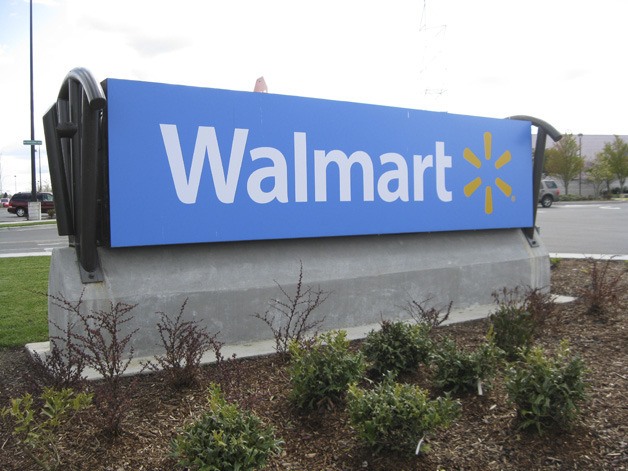Auburn Mayor Pete Lewis on Monday signed a settlement agreement with Walmart Stores, Inc., that heads off City legal action against the retail giant as future tenants check out the now vacant store Walmart occupied until last fall west of the SuperMall.
“We’ve come to an agreement on the old site, and one or more tenants have been identified,” said Jennifer Spall, Walmart senior manager of public affairs for Oregon and Washington. “There are no dates for operations, and we have no intention to disclose who they are at this point. The City is aware of who one of the tenants is, and is happy.”
The City had threatened to revoke the new superstore’s occupancy permit if Walmart didn’t fulfill the obligations spelled out in a 2006 development agreement among the City, Walmart and Glimcher, the owner of the SuperMall. That agreement committed Walmart within five years either to find a new tenant for the vacant store or raze the building and put up new ones. In exchange, Walmart obtained development breaks from the City that saved it money on the construction of the new superstore.
City officials are pleased with the new agreement.
“The agreement obligates Walmart to a timetable, enforces the penalties originally stated and calls for liquidated damages in case they don’t meet the timetable,” Lewis said. “So it gives the citizens of Auburn more surety that either we will have that new business or businesses there shortly, or the buildings will be razed and new businesses built.”
While City officials know who one of the tenants is, the agreement forbids them from identifying the tenant or even hinting at the sort of business that will be there.
“… We have due diligence going on with (the) Black Equities (investment group) right now,” Spall explained, “and we do have tenants that we cannot disclose. Our policy is that it is up to those tenants, depending on when their market entry is and all that, to disclose when they are ready to do so. They are going through the building with their architects right now.”
Working out a plan
Spall said Walmart came up with a plan for the City Council to work with the mayor, planning director and city attorney on what the agreement would look like until the tenants are in and the store is operating.
“We talked to the mayor about our community involvement. We also talked to the mayor about extending some of the dates of due diligence,” Spall said. “The timelines will still stay the same as far as getting a tenant in the building. But some of the internal deadlines might need to be shifted around because of who the tenants are that are coming in and some of the due diligence and permits that might be needed.”
Lewis has insisted that the City’s concern throughout the 16 months of negotiations was to avoid being left with an empty building, something he claims Walmart is notorious for.
Not true at all, Spall said.
She said Walmart has had only three “dark” or empty stores in Washington — Port Angeles, Mount Vernon and Auburn — and when it vacated them to move to newly built superstores, it worked with the mayors and City Councils of the cities to fill the buildings.
Spall said tenants have been tough to find in this economy and that explains why it has taken so long to come to this point.
“It’s totally the economy,” said Spall. “When we first signed this agreement six years ago, the economy was a completely different story. We went back to retail associations and found out that Auburn actually has one of the highest retail vacancy rates in the state. I’m not sure about all the factors that are behind that.
“We did have a dark (empty) store in Mount Vernon, and we worked great with the mayor and economic director to get someone into that site,” Spall said. “In Auburn, we went from a store with no groceries into a larger store, and in Mount Vernon we did the same thing. In Mount Vernon, the City came to us and said, ‘We want to work with you finding a new tenants for this building.’
“Also, the original agreement gave Glimcher, owner of the SuperMall, the right of first refusal. Glimcher waited until the last moment to tell us, ‘We don’t want the property, we don’t want the option.’ We had one day to turn around and find new tenants,” Spall said.



